







Xinhua News Agency, Tunisia, December 3 (Reporter Xu Supei, Huang Ling) The 17th regular session of the Intergovernmental Committee for the Protection of Intangible Cultural Heritage of UNESCO closed in Rabat, Morocco, on December 3. At this regular session, a total of 47 projects were included in the United Nations Intangible Cultural Heritage List.
Among the 47 projects, 4 are listed in the intangible heritage list that needs urgent protection, including the traditional Ahrat stone carving in Turkey and the pottery-making skills in cham, Vietnam. There are 39 projects listed in the list of human intangible cultural heritage, including China’s traditional tea-making skills and related customs, Cambodian traditional martial arts, French baguettes, Algerian popular folk songs, etc. Another four projects were included in the list of outstanding practices.
In official website, UNESCO said that one third of the projects listed in this year’s intangible cultural heritage list are related to the protection of nature and biodiversity, which shows the determination of the international community to make environmental protection a priority under any circumstances.
This regular session opened in Rabat on November 28th.
The Intergovernmental Committee for the Protection of Intangible Cultural Heritage of UNESCO is the statutory organ of the Convention for the Protection of Intangible Cultural Heritage. UNESCO believes that intangible cultural heritage not only maintains the sense of identity and continuity of relevant communities, groups and individuals, but also is an important resource to ensure world cultural diversity and human creativity.
On January 6th, the launching ceremony of the Qinghai-Tibet Central Line (Tangfan Ancient Road) self-driving tourist route into Tibet was held in Lhasa, Xizang. The Qinghai-Tibet Central Line is a scenic passage with profound cultural heritage that passes through Yushu in and out of Xizang, starting from Xi ‘an, Shaanxi, passing through Lanzhou, Gansu and Xining, Qinghai, and reaching Yushu City, Yushu Prefecture, Qinghai Province (or starting from Chengdu, Sichuan Province, passing through Ya ‘an, Kangding, Ganzi and Shiqu, and reaching Yushu City). The total length of Xi ‘an-Lhasa line is 2662km, and the total length of Chengdu-Lhasa line is 2128km, which is the fastest route to Tibet.

Promotion meeting site. People’s Daily reporter Yang Qihong photo
On January 5th, the Xizang Baqing section of National Highway 317 connected with the Zaduo section of National Highway 345 in Qinghai was officially put into operation, which shortened the journey from Xining to Lhasa by more than 120 kilometers, and the journey from Chengdu to Lhasa by more than 300 kilometers, making it the shortest route from Qinghai and Sichuan to Xizang, with beautiful scenery, rich culture and the best security, and jointly creating an eco-tourism boutique route for Yushu and its neighboring brother areas to jointly promote cultural tourism.

The self-driving motorcade is driving on National Highway 345. People’s Daily reporter Yang Qihong photo
Zhan Dui, member of the Standing Committee of Lhasa Municipal Committee and executive deputy mayor, said that the Yushu Prefecture People’s Government’s promotion of the self-driving tour route of the Qinghai-Tibet Central Line (Tangzhu Ancient Road) into Tibet is of great significance to the research, development and protection of cultural tourism resources along the ancient road and the socio-economic development of the areas along the ancient road, and laid the foundation for the future cooperation between Yushu and Lhasa.

Zhan Dui, member of the Standing Committee of Lhasa Municipal Committee and executive deputy mayor, delivered a speech. People’s Daily reporter Yang Qihong photo
"This time, the Qinghai-Tibet Central Line (Tangfan Ancient Road) is officially introduced as a self-driving tourist route to Tibet, hoping to use this as a link to promote the activation and utilization of Tangfan Ancient Road and give it the significance of the times. Relying on the brand effect of" Snow Pearl Happy Lhasa ",the tourist attractions of beautiful qinghai Jiangyuan Yushu will be connected in series to create a unique cultural tourism corridor and empower the high-quality economic and social development along the route." Cai Danzhou, deputy secretary of Yushu State Committee, said.

Cai Danzhou, Deputy Secretary of Yushu State Committee, delivered a speech. People’s Daily reporter Yang Qihong photo
Yushu Prefecture is located at the source of the Yangtze River, the Yellow River and the Lancang River. It is known as the "Sect of Famous Mountains, the Source of Rivers, the Water Tower of China, the Land of Singing and Dancing, and the Land of Yaks". The tourism resources here are very rich and its ecological status is extremely important. In recent years, Yushu Prefecture, based on its unique ecological and cultural tourism resources, has put forward the goal of building an "international eco-tourism destination preferred area", which has been continuously explored and practiced from the aspects of top-level design and landing implementation.
At the press conference, Yushu Prefecture Bureau of Culture, Sports, Tourism, Radio and Television signed strategic cooperation agreements with tourism enterprises and travel agencies such as Xizang Hongji Group, Xizang White Whale Wenlv Group and Xizang Tourism Investment Company. Go on road trip fans and self-media bloggers were awarded letters of appointment as "promotion officers" for the self-driving tourist routes of the Central Line of Qinghai-Tibet (Tangfan Ancient Road).

Issue a letter of appointment for the "recommendation officer". People’s Daily Online Photo by Chen Mingju
In addition, Jiang Zhuojun, the initiator of the self-driving activity of the "Mulan Driving" Qinghai-Tibet Middle Line (Tangfan Ancient Road) into Tibet, officially launched recruitment to the whole country on the spot, expecting 108 "Mulan" women to revisit the Tangfan Ancient Road and relive the princess’s memory.
Make up a series of talents, benevolence and eternal storage
Examine and verify, be more relaxed and Raj.
Record of loyalty of the supervisor
Laiyuansa People’s Network-Qinghai Channel
Original title: "Promotion Meeting of Self-driving Tourist Routes into Tibet on the Qinghai-Tibet Central Line (Tangfan Ancient Road) Held in Lhasa, Xizang"
Read the original text



[Autohome Wuxi Discount Promotion Channel] brings you the latest news, an exciting price reduction campaign is being launched that has attracted much attention. At present, car buyers in Wuxi are fortunate to enjoy a substantial profit of up to 30,000 yuan, which brings the starting price of this luxury new energy model down to 519,000 yuan. This is a rare opportunity to buy a car. Consumers who want to experience the excellent quality of Lexus should not miss this opportunity. To seize this price reduction, please click "Check the car price" in the quotation form to get more favorable car purchase conditions.

Lexus RX New Energy sets the trend with its elegant and dynamic exterior design. On the front face, Lexus’ iconic spindle grille is exquisite and powerful, with sharp LED headlights, showing a unique luxury temperament. The body lines are smooth, blending sports and luxury elements, and the overall style is both stylish and stable, showing the consistent high-end positioning of the RX series. Details, exquisite chrome decoration and spoiler design on the roof all reflect the respect and practice of new energy models for environmental protection concepts.

The Lexus RX New Energy outlines a unique side profile with elegant body lines. Its slender body size is 4890mm x 1920mm x 1695mm, showing the style of a luxury SUV. The wheelbase is 2850mm long, providing a spacious interior space for passengers. The tire size is 235/50 R21. The front and rear wheels are of the same specification. The wheel rim style combines dynamic and refined, adding a sense of power and sporty to the vehicle. The overall design not only focuses on practicality, but also pays more attention to aesthetics and comfort, highlighting the unique design concept of the Lexus brand.

The interior design of Lexus RX New Energy highlights the perfect fusion of luxury and technology. Using exquisite leather material, the steering wheel provides a comfortable grip, and uses electric up and down + front and rear adjustment functions to ensure that the driver can easily find the most suitable driving position. The center console is equipped with a 14-inch high definition touch screen, integrated multimedia system, navigation, phone and air conditioning control, smooth and intelligent operation. The car is also equipped with a wealth of USB and Type-C ports, including 4 in the front row and 2 in the rear row, as well as wireless charging function of mobile phones to meet the multimedia needs of passengers.
In terms of seats, both the driver’s seat and the passenger’s seat are made of high-grade leather material, which supports front and rear adjustment, backrest adjustment and multi-directional electric adjustment, including high and low, waist support, etc., to ensure the comfort of the ride. The main and passenger seats are equipped with heating and ventilation functions, and have an electric memory function, which is convenient for the driver to set according to personal habits. The second row of seats also takes into account the needs of passengers, supports backrest adjustment, and can achieve proportional reclining, providing flexible space solutions for loads. The overall interior design focuses on practicality without losing elegance and quality.

The Lexus RX New Energy is equipped with a 2.5L four-cylinder engine with a maximum power of 136 kilowatts and a strong torque of 228 Nm. This power system is perfectly matched with the E-CVT continuously variable transmission, which not only guarantees the high efficiency of the vehicle, but also realizes a smooth driving experience.
Summarizing the owner’s evaluation, he highly praised the appearance of the Lexus RX new energy, saying that its front face design shows a good high-end temperament. However, he also mentioned a detail problem, that is, the tail design is slightly insufficient, which may affect the overall appearance. Despite this small flaw, the overall appearance of this model obviously meets his requirements for quality and style.
CCTV News:The work reports of local governments in 2022 not only put forward clear economic growth expectations, but also planned specific implementation paths. In 2022, how will they plan to achieve steady growth and high-quality development?
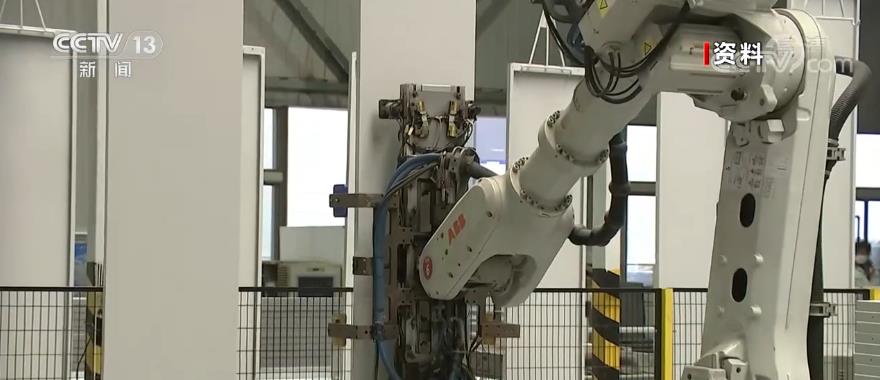
Stabilizing industrial growth is the top priority in many places. How to stabilize industry? "Industrial cluster" has become a high-frequency keyword, which has been mentioned 79 times. Among them, Sichuan, Jiangxi and Henan emphasize to build a number of emerging industrial clusters in high-tech industries such as new materials, new energy, semiconductors and integrated circuits.
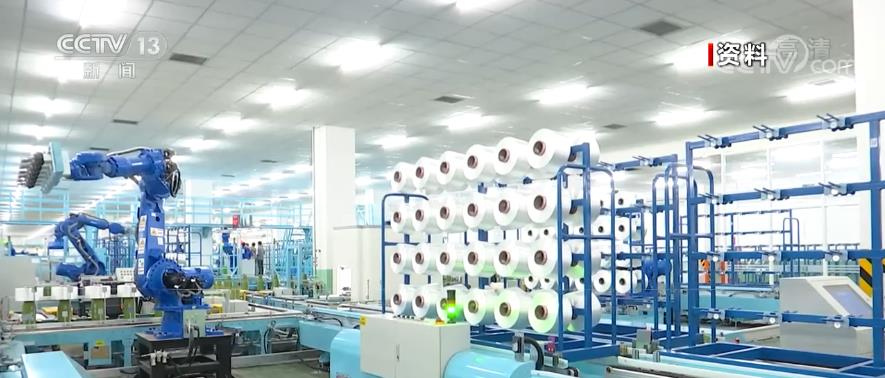
Jiangsu, where the added value of the secondary industry has exceeded the 5 trillion mark, proposed to cultivate and expand 16 advanced manufacturing clusters and deploy and implement a number of major projects of industrial base reconstruction and industrial chain modernization. Guangdong proposes to build a world-class advanced manufacturing cluster and promote the construction of 20 strategic industries.
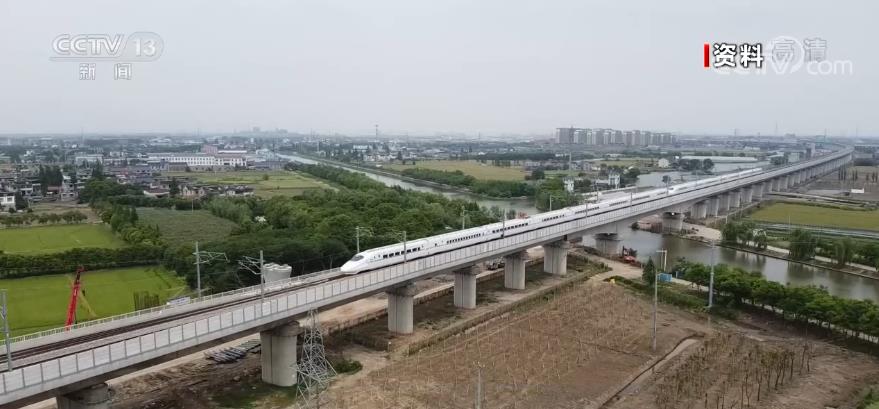
Expanding effective investment is also an important means for local governments to grow steadily in 2022. Many places emphasize "moderately advance the layout of major infrastructure", among which 19 provinces have clearly put forward the target of fixed asset investment growth. Among them, Henan, Anhui, Liaoning, Guangxi, Xinjiang and Heilongjiang proposed that the growth target of fixed assets investment should be set at 10%. In addition to traditional infrastructure such as railways, highways, airports, etc., the specific investment focuses on accelerating the progress of investment and construction around major projects such as new infrastructure, new urbanization, transportation and water conservancy.
1905 movie network news On February 6th, a feature film was released for the first time by the director. Zhang Da (act the role of) and Sun Jun (act the role of) were trapped in the face of life and death choices. For the first time, their "uncles and nephews" were frank and honest, and Zhang Da knelt down and begged Sun Jun to lay down his life for the justice of his country. What choice would Sun Jun make? The movie "Man Jiang Hong" is showing.
Passing on the ambition of loyalty in tears, Shen Teng Jackson Yee’s exquisite acting touches people’s hearts
The film "Man Jiang Hong" is the first screen collaboration between Shen Teng and Jackson Yee. In the newly released feature clip "Loyalty and Righteousness", the two men have exquisite acting skills, which convey more information about their respective roles and movies. This scene in the movie took place at the dawn, which is an important plot and turning point in the movie. After an hour of dark battle, the mystery of Zhang Da’s identity played by Shen Teng was finally revealed. In the clip, he was completely cunning and tactful, and his expression was firm and his words earnestly asked Sun Jun to fight for the inheritance of loyalty and righteousness. Sun Jun, played by Jackson Yee, also faded the disguise of indifference, revealing years of suffering and humiliation. The sky is bright and the final battle is coming.
In the clip, Zhang Da and Sun Jun are sitting side by side, and the twilight has been seen outside the window. The scene seems calm, but in fact it is the farewell moment of their life and death, and the lines of the characters and the exquisite acting skills of the actors also convey extremely rich information. Zhang Da slowly tells the past memories, and his tone is full of enthusiasm and sincere words, revealing that although Zhang Da is a nobody, he still doesn’t forget to inherit his loyalty. Sun Jun was silent all the time and didn’t say a word, but the tears that were hard to hide made people break through, which further highlighted his unwillingness and struggle as a bloody soldier who could not join the battlefield. Zhang Da saw that Sun Jun was different from He Li and others. It was because of the current situation that it was difficult to realize his ambition. He hit the nail on the head that his heart was still hot, moved by emotion, and begged him to regain his original heart and fulfill his righteousness. Sun Jun’s expression was micro-moving, showing the complexity of the characters. The whole clip reveals the family ties between Zhang Da and Sun Jun, but also shows that both of them embrace the ideal of mountains and rivers, and the emotions conveyed are very infectious and full of tension, which makes the audience feel the sincere heart of the characters to inherit loyalty, and the multiple emotions of family, humanity and home country are intertwined, pushing the audience’s emotions to a high point, poking people’s hearts and moving people.
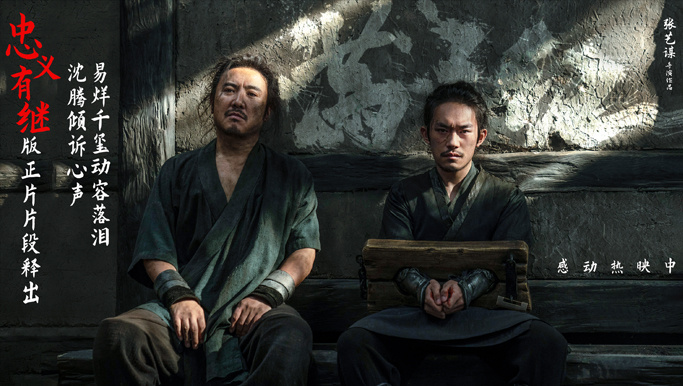
Small people’s images create flesh-and-blood feelings of home and country, and set off a movie-watching craze.
There are many characters in the film "Man Jiang Hong", and the roles are rich and full, especially the group image of the little people is deeply rooted in the hearts of the people. In addition to Zhang Da, heptachord, regardless of the two-way life and death, went to the sadness interwoven with friendship, and Ding Sanwang, Liu Xi, Liu Yan, Qing Mei and other figures went to the bureau at their own risk, courageously marching forward without fear of life and death, and each figure was shaped vividly and three-dimensionally, weaving a touching elegy together. Screenwriter Yu Chen said earlier that it took a long time to build the characters in the film, and it was the goal of creation to make them really "live".
Since its release, the film "Man Jiang Hong" has gained great attention and good reputation. The story takes the little people as the incision. Through the confrontation between people in layers of puzzles and various interpretations of life and death, it shows the adherence and loyalty of the people at the bottom of the country. The vivid figures and enthusiastic emotional transmission are impressive, especially the scene of the whole army repeating at the end of the film makes people excited, which evokes a strong resonance in the audience and triggers a movie-watching craze.
The film is directed by Zhang Yimou, written by Yu Chen and Zhang Yimou, starring Shen Teng and Jackson Yee, starring,,,, and friendship, featuring, Zhang Chi and Huang Yan, starring Xu Jingya, Jiang Pengyu, Lin Boyang, Fei Fan, Ren Sinuo and Chen Yongsheng, and is being touched by the national cinema.
CCTV News:Recently, a new case of group corruption in Nanning Customs in Guangxi was added: Tang Jun, the former chief clerk of Nanning Customs, who was suspected of collecting more than 52 million yuan, appeared in court for trial.
According to media reports, in 2012, when Nanning Customs investigated the rubber smuggling case, it found clues that the internal anti-smuggling personnel were suspected of violating the law and discipline, and then the Guangxi procuratorate conducted a criminal review on the former Nanning Customs anti-smuggling policeman Tang, thus uncovering a series of law enforcement corruption cases of Nanning Customs anti-smuggling team.
CPC Central Commission for Discipline Inspection and relevant state departments have paid close attention to a number of major criminal cases designated by higher courts, such as Tang’s case of accepting bribes and huge amount of unidentified property. On July 5, 2016, the party secretary and discipline inspection team leader of Nanning Customs were "invited" to Beijing for talks by the party group of the General Administration of Customs because of local group corruption. At the same time, the party group of the General Administration of Customs seriously blamed the group corruption of Nanning Customs, and supervised the customs to investigate the responsibility of the leading bodies of six units and departments and 18 department-level cadres of the Anti-smuggling Bureau. Two bureau-level cadres of the former party group of the Anti-smuggling Bureau were not able to implement the main responsibility and were put on file for review.
Through this case, several keywords are particularly eye-catching. "Chief staff", "department-level cadres" and "huge amount of property" all point to a key link in the anti-corruption work: punishing "petty officials and great greed".

Network picture
When it comes to "small officials and great greed", netizens are not unfamiliar. Since the 18th National Congress, CPC Central Commission for Discipline Inspection has investigated and dealt with a number of typical cases of "petty officials and great greed":
With 120 million yuan in cash, 37 kilograms of gold and 68 houses, Ma Chaoqun, the general manager of Beidaihe Water Supply Company in Qinhuangdao City, Hebei Province, "made" a jaw-dropping number of corruption, and was called "the most corrupt department-level cadre in history".
In Guangzhou, Zhang Xinhua, the former general manager of the state-owned Baiyun Agriculture, Industry and Commerce Joint Company, was accused of corruption of 284 million yuan and bribery of nearly 100 million yuan;
In Shenzhen, Zhou Weisi, director of the former village committee of longgang town Nanlian Community, was suspected of accepting a huge bribe of 56 million yuan with others in the local old city reconstruction project;
In Beijing, Ji Haiyi, former party secretary of Sunhe Township in Chaoyang District, took bribes of more than 90 million yuan, Chen Wanshou, an accountant in Huanghoudian Village, Northwest Wang Town, Haidian District, misappropriated funds of 119 million yuan, and Yuan Xueqin, former director of the Rural Economic Management Center of Jiuxian Town, Yanqing County, misappropriated public funds of 24 million yuan;
In June this year, CPC Central Commission for Discipline Inspection once again reported nine cases of petty officials’ greed. It is clearly pointed out in the circular that embezzlement, looting, and card grabbing still occur from time to time in the fields of benefiting farmers, land expropriation, "three-capital" management and poverty alleviation, and "petty officials are greedy", "village tyrants" and clan evil forces appear from time to time.
It can be seen that these "petty officials are greedy" behaviors not only devour the state and collective property, but also happen at the grassroots level and around the masses, thus directly infringing on the vital interests of the people, corrupting the social atmosphere, affecting social harmony, and having more direct and serious damage to the image of the party and the government and the local political ecology.
Putting power into the institutional cage is an important anti-corruption consensus since the 18 th National Congress. In order to curb the phenomenon of "greed of small officials", the central and discipline inspection and supervision organs at all levels insist on putting discipline ahead, and win the trust of the people through strict supervision and accountability, so that people can truly feel that "discipline is a high-voltage line with electricity".
— — In 2015, various provinces generally carried out talks, correspondence and other systems to curb violations of discipline in the bud. According to statistics, as of November 30, 2015, 32,128 mental cases in violation of the eight central regulations were investigated and dealt with, with 43,231 people, and 29,011 people were disciplined by the party and government.
— — In 2016, the discipline inspection and supervision organs at all levels carried out the decision-making arrangements of the CPC Central Committee, followed the provisions of party constitution, focused on the central tasks, actively applied the "four forms" of supervision and discipline, maintained a high-pressure situation, continuously purified the political ecology, and consolidated the atmosphere of "not daring to rot".
— — In 2017, the anti-corruption situation ushered in a historic change: through the joint efforts of the whole party, the party’s main responsibility of organizing and managing the party at all levels has been significantly enhanced, the spirit of the eight central regulations has been resolutely implemented, the party’s discipline construction has been comprehensively strengthened, the spread of corruption has been effectively curbed, the overwhelming situation of the anti-corruption struggle has been formed, the goal of not being corrupt has been initially realized, the system that cannot be corrupted has been improved day by day, the dam that does not want to be corrupted is being built, and the political life within the party has taken on a new look.
People’s heart is the greatest politics, and justice is the strongest force. On January 6, 2017, the Supreme Leader pointed out at the Seventh Plenary Session of the 18th Central Commission for Discipline Inspection in communist party, China: adhere to anti-corruption, with no forbidden zone, full coverage and zero tolerance, make efforts to curb the breeding and spread of corruption, punish unhealthy practices and corruption problems around the masses, make efforts to enhance the people’s sense of gain, comprehensively strengthen inner-party supervision, give full play to the role of patrolling the sword, and promote the continuous and in-depth development of strictly administering the party in an all-round way.
The deeper the anti-corruption, the more popular the masses are. I still remember that the protagonist of the movie mr. six, after learning about the violation of discipline of a senior official in a southern province, sent his evidence of violation to the Central Commission for Discipline Inspection, and eventually the other party was investigated. Although the plot of the film is purely fictional, it starts from "reporting to CPC Central Commission for Discipline Inspection ‘ Tiger ’ In the detail of "success", we can see the trust of the broad masses in the Central Commission for Discipline Inspection and the recognition of the party’s anti-corruption achievements since the 18th National Congress. People more and more truly feel that "discipline is a high-voltage line with electricity", and the atmosphere of leading cadres at all levels of the party and government is deeply rooted.
Recently, the new model was officially launched. As a modified model, what is the product strength?
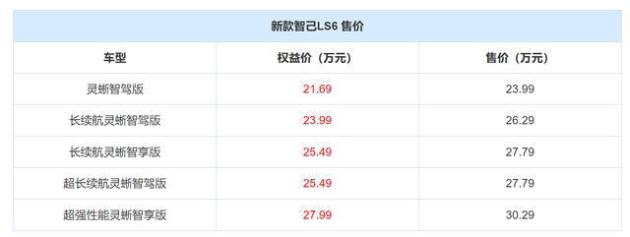
In terms of exterior design, the new Zhiji LS6 has been adjusted for details. The headlight style and fog lights on both sides are more minimalist, the front surround has been redesigned, and the area of the front intake grille has been reduced, reducing the visual center and making the whole vehicle look more stable. The closed front grille with long air intakes and raised ribs in the front hatch creates a good sense of movement.

The side shape is closer to the feeling of a coupe SUV, and the tail is appropriately elongated, which is fashionable and lively. The double five-spoke wheels are painted in matte black and matched with orange-red brake calipers, which is full of movement and complements the body style.

In the rear part of the car, the upturned "rear wing" adds a sporty atmosphere, and the lines lit by the through taillight group are exquisite and have a high degree of recognition. In terms of size, the 2960mm wheelbase provides protection for the interior space.
In terms of interior, the center console of the new car continues the family-style design language, and the entire central control is almost occupied by the screen, creating a strong technological atmosphere. 26.3-inch Dalian screen + 10.5-inch touch screen and half-spoke steering wheel, showing a sense of technology and future. Replace Qualcomm Snapdragon 8295, and add CarLink and HiCar mobile phone interconnection to improve the performance and compatibility of the car system. 21 speaker configuration, which also adds an external speaker, which can play theme music and pedestrian warnings, etc.
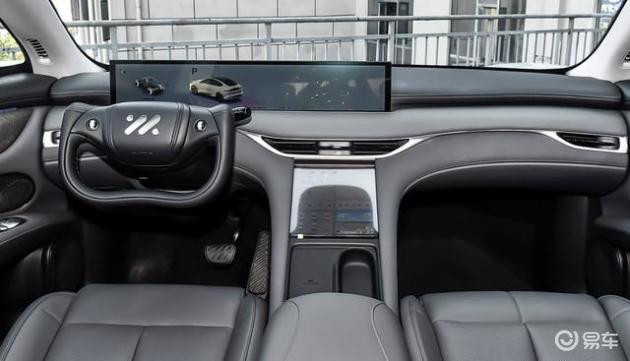
The passenger seat has been upgraded to increase the comfort of the ride. The equipment of heating and cooling box, 50W air-cooled wireless fast charging, four-door double-side glass and RNC active noise reduction further enhances the overall comfort experience. The passenger 121 ° zero-gravity seat provides users with more usage scenarios and convenience.
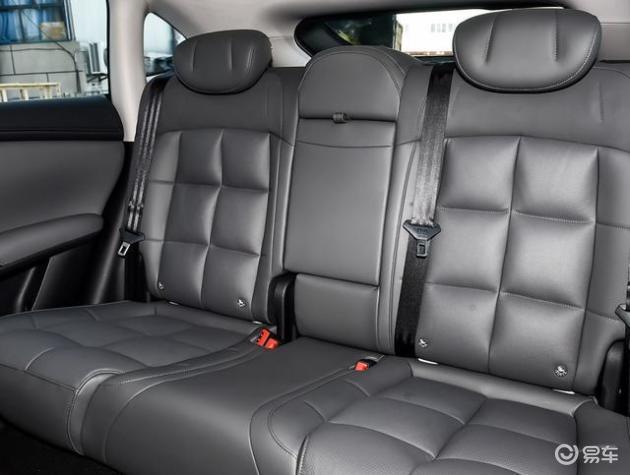
In terms of power, the new Zhiji LS6 offers a variety of power options, with excellent battery life. It still supports quasi-900V fast charging, and can make up 579km in 15 minutes, greatly shortening the charging time. The strong power and fast acceleration performance of the four-wheel drive version provide consumers with a choice for the pursuit of passion driving. The chassis supports OTA and is composed of air suspension, electronically controlled shock absorption system and high-performance braking system. With the blessing of four-wheel steering, the turning radius is greatly reduced, improving the vehicle’s handling and flexibility.
However, in terms of the interior of the new Zhiji LS6, the use of a large number of screens may produce problems such as reflections in some cases, which affects the viewing effect. In terms of power and battery life, although it performs well, in actual use, the cruising range may be affected by a variety of factors, and the compatibility and stability of fast charging also need time to verify. In addition, the price range of the new car is at a high level among the same class of models, which may affect the purchase decision of some consumers.

Overall, the new LS6 has some bright spots in terms of appearance, but there are also some areas that need to be improved and enhanced. In the highly competitive SUV market, it needs to continuously improve its product capabilities.
Cctv newsAt 15: 00 on April 20th, the State Council Press Office held a press conference to introduce the development of industry and informatization in the first quarter of 2023 and answer questions from reporters.
Zhao Zhiguo, chief engineer and spokesperson of the Ministry of Industry and Information Technology, said that in the first quarter, the Ministry of Industry and Information Technology conscientiously implemented the decision-making arrangements of the CPC Central Committee and the State Council, adhered to the general tone of striving for progress while maintaining stability, and pushed the high-quality development of the information and communication industry to a new level.
First, the power is more sufficient and the pace of industry development is steady. Emerging businesses grew at a high speed, and the revenues from Internet data centers, cloud computing, Internet of Things and other businesses increased by 24.5% year-on-year, driving the telecom business revenue to increase by 4.8 percentage points, gradually becoming a new power source for industry development. The revenue of telecom business increased steadily, with a total of 425.2 billion yuan in the first quarter, up by 7.7% year-on-year. The total telecom business increased by 18% year-on-year, and the overall operation of the industry improved.
Second, the foundation is stronger and the network capacity continues to improve. The network foundation is becoming more and more complete. By the end of March, China had built more than 2.64 million 5G base stations, and the number of ports with gigabit network service capacity exceeded 17.93 million, realizing "Gigabit in the city" and "5G in the county". The scale of computing power has grown rapidly. The computing power supply system optimized by steps has been initially established, and the computing power scale ranks second in the world, with an annual growth rate of nearly 30%. The development of IPv6 continues to deepen. From "usable" to "easy to use" of IPv6, mobile network IPv6 traffic surpassed IPv4 traffic for the first time, accounting for more than 50%, which ushered in the Internet era dominated by IPv6.
Third, the application is wider, and the popularization of high-speed services is accelerated. The scale of connectivity continues to grow. By the end of March, there were 620 million users of 5G mobile phones, over 100 million users of Gigabit optical networks and 1.984 billion users of mobile Internet of Things in China, and the proportion of "things" connectivity increased to 53.8%. The foundation of the Internet of Everything was steadily consolidated. Converged applications have gone deeper and deeper. 5G applications have covered 52 national economic categories, and the number of "double Gigabit" network application cases of 5G and Gigabit optical networks in China has exceeded 50,000. The mobile Internet of Things has achieved large-scale applications in digital city construction, smart transportation, mobile payment and other fields.
Fourth, the experience is better, and user services are shared. The universal service of telecommunications has been promoted in depth, the network coverage level in remote rural areas has been continuously improved, and the 5G network has been expanded to rural areas, which strongly supports the rural revitalization strategy. The user’s sense of acquisition has been continuously improved. In the first quarter, the download rate of China’s mobile and fixed broadband increased by 59.9% and 15.1% respectively compared with the same period of last year, and the mobile data traffic tariff continued to decline. Information accessibility has been continuously enhanced, and the aging transformation of Internet applications has been further promoted, guiding a number of outstanding transformation cases of mainstream websites and mobile apps to be popularized and applied nationwide.
In the next step, we will focus on three aspects, make the information and communication industry better and stronger, and provide solid support for promoting high-quality economic and social development.
The first is to tamp the base of digital facilities. We will study and introduce policies and measures to promote the coordinated development of new information infrastructure construction, promote the "broadband frontier", the "light-chasing action" of Gigabit optical networks, the strong foundation construction of cloud networks in small and medium-sized cities, and the high-quality development of mobile Internet of Things, and promote the construction of new infrastructure in an integrated manner.
The second is to accelerate the innovation of technology industry. Promote breakthroughs in key core technologies such as 6G, optical communication and quantum communication, and increase research and development of cutting-edge technologies such as artificial intelligence, blockchain and digital twinning. Overcome a number of "stuck neck" key areas and improve the resilience and safety level of the industrial chain supply chain.
The third is to deepen the application of industry integration. Vigorously promote the integration and application of new generation information and communication technologies such as 5G and Gigabit optical networks in vertical industries, information consumption, social livelihood and other fields, promote the scale application of industrial Internet, focus on key areas to form demonstration benchmarks for innovative applications, and help the digital transformation of industries.